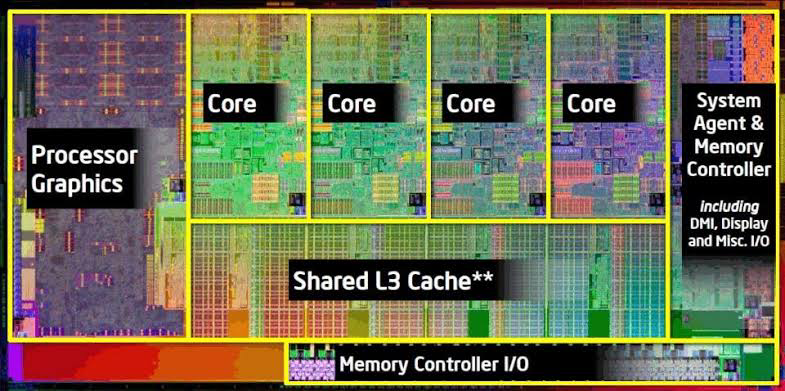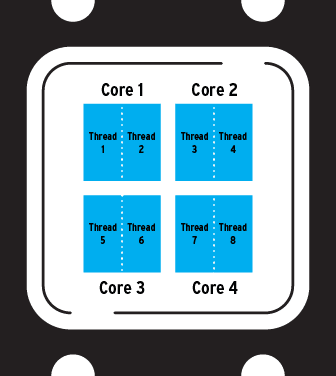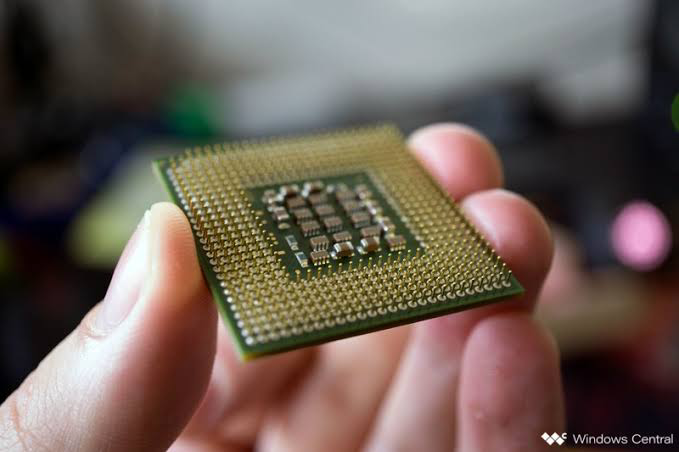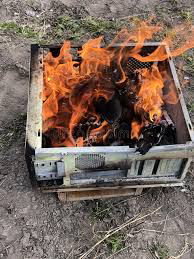If you think to start mining and thinking of using your CPU, the first question would be on its profitablity.
The answers is yes. If you have a good ming CPU and you choosed the right coin, you will start making extra money just by leaving it running.
Introduction
Are you familiar with CPU mining? I'm hoping you'll say no to this query. If that's the case, then this article will explain what CPU mining is. According to our best guess, you'll also find some of the most popular coins that can be mined using a computer.
Furthermore, this article will answer the most often asked topics, such as whether CPU mining is profitable.
, how to get started with CPU mining, and which CPU is ideal for mining? Continue reading this CPU mining article for additional information on the answer to the question.
Despite the popularity of Bitcoin, the days of mining 50 BTC on a laptop are long gone. Many miners, though, still choose CPU mining. This is because CPU mining is the most cost-effective sort of crypto mining technology, according to its availability and claims.
There are still active mineable cryptos for CPU mining on lower-end systems as of today. It doesn't imply you should pursue it with any crypto just because it's still working effectively for some.
Several cryptocurrencies that began with this method of mining have now switched to considerably more powerful chipsets such as GPU mining and ASICs, rendering CPU mining obsolete.
At first, it appeared like the majority of the crypto community was abandoning the CPU mining scene. However, as the demand for ASIC chipsets continues to grow, certain cryptocurrencies are turning back to CPU mining as a safe haven from higher-end chipset variations. Despite the fact that CPU processing is not built to handle the repeating difficult mathematical problems that crypto mining entails.
Furthermore, some at-home miners still find it appealing because you never know which cryptocurrency will be the next Bitcoin. Did you know that in the early days of Bitcoin, CPU mining was the sole option for miners? Back in 2010, it was possible to mine Bitcoin with an Intel Pentium CPU and make hundreds of bitcoins. But that's no longer an option.
Not only with Bitcoin, but with practically every other cryptocurrency. However, there are two possible explanations. To begin, there is an increase in network difficulty. Second, the emergence of a few ASIC miners. CPU mining was enabled by both of these characteristics for the vast majority of coins.
What Is CPU Mining?
Allowing computer power to tackle complex mathematical riddles or algorithms is known as mining. Miners verify a block of transactions on the blockchain by doing so. It awards you with new money from a block for completing this operation.
ASIC (Application Specific Integrated Circuit) machines are used by miners to mine altcoins and allocate GPU power on their PCs. However, there are a few altcoins that can be mined using a computer.
CPU mining is a way of checking transactions on the blockchain and creating or mining new currencies that use CPU cores. Furthermore, CPU mining entails the use of ordinary computers or the setup of CPU mining rigs to leverage their power, primarily as mining devices.
During the early days of crypto mining, CPUs were the only machines available. GPU mining eventually superseded CPU mining owing to processing power and speed limitations. As a result, CPU mining becomes increasingly inefficient.
Furthermore, it is based on Satoshi Nakamoto's "one processor, one vote" consensus mechanism, which was suggested in the Bitcoin whitepaper. However, in the case of Bitcoin, this premise was breached. Only a few altcoins now allow CPU mining.
List of Altcoins for CPU Mining
The coins listed below are the ones that are currently accessible for CPU mining.
| Coin | Algorithm |
| Monero (XMR) | Random X |
| Verus Coin (VRSC) | VerusHash 2.0 |
| Nimiq (NIM) | Argon2d |
| WebDollar (WEBD) | Argon2d |
| Gulden (NLG) | Sigma |
| PascalCoin (PASC) | Random Hash |
| Banano (BAN) | Folding@Home |
| Myriad (XMY) | Yescrypt |
| Dynamic (DYN) | Argon2d |
| Credits (CRDS) | Argon2d |
| Scala (XLA) | RandomX |
| Arionum (ARO) | Argon2d |
| CPU Chain (CPU) | CPUpower |
| Nerva (XNV) | CryptoNight Adaptive |
| Tera (TERA) | Secp256k1 |
| Sumokoin (SUMO) | CryptoNight R |
| X-Cash (XCASH) | CryptoNight HeavyX |
| Hodlcoin (HODL) | AES Pattern Search |
| Bytecoin (BCN) | CryptoNote |
| GlobalBoost-Y (BSTY) | Yescrypt |
| Aquachain (AQUA) | Argon2id |
| Sequence (SEQ) | Argon2d |
| Yenten (YTN) | YescryptR16 |
| Unitus (UIS) | Argon2d |
| Verium (VRM) | Scrypt2 PoWT |
| Zumy (ZMY) | Argon2d250 |
| Pegnet (PEG) | LXRHash |
| Seele (SEELE) | MPoW |
| Sugarchain (SUGAR) | YespowerSugar |
Those coins are still mineable at the time of writing. However, there will be a project that has been abandoned or is no longer active that will be eliminated. However, please do your homework before investing your time and money in mining these coins.
As a result, the profitability of CPU mining is determined by a variety of parameters, including network hash rate, hardware cost, energy cost, and so on. Make sure, though, that the coin you're mining at least covers your electricity costs so you may save your coins for future profit.
What CPU Is Best for Mining?
Aside from choosing one of the easier cryptos to mine, there are a few things to think about while selecting a CPU.
Cores
Your mining experience will be more profitable if your processor has more cores. In other words, having more cores allows your CPU to multitask much more effectively. Furthermore, an 8-core CPU is a fantastic place to start.
Treads
Treading causes a CPU to spit out more cores than it originally had. That is, making it run faster and smoother than it would without. The threading advantage, on the other hand, is defending whether you'll receive an AMD or an Intel processor.
In most cases, a processor can tread twice as much as its base quantity. A four-core processor, for example, can produce up to eight threads on average. As a result, the more threads you have, the better.
Speed
To mine properly, you'll need a decently high hashrate. You'll need a CPU with a competitive frequency to achieve these requirements, and the higher the hashrate, the better your chances of outmining other miners.
Also, make sure to get a good processor. Keep in mind that a processor that falls short in any of these areas is likely to lose your money. These gadgets may be suitable for mining, however the expense of electricity will outweigh any gains.
Furthermore, do not use your laptop to mine CPUs. This equipment isn't designed to manage the amount of heat and electricity required by this process. Even if your laptop has the most advanced processor available. Similarly, make sure you're using a desktop with a sufficient power supply.
How To Start CPU Mining
It's time to get started mining now that you know what an excellent CPU is for the job. Here are a few options for getting started with CPU mining.
Solo Mining
You can mine on your own, although it is not recommended. This kind of CPU mining, however, requires you to be the first to solve a block's algorithm in order to collect a reward.
Mining alone pits you against a variety of strong equipment, many of which will outperform your CPU. So take note: if you don't know what you're doing, don't try it.
Mining Pool
One of the most well-known methods for both CPU and GPU mining is to join a mining pool. To begin, you join a pool of hundreds of other miners who are all trying to solve the same block. However, with all of the power hashing together, the chance
Is CPU Mining Safe?
It's time to start mining now that you've found the coin you wish to mine. However, you may be concerned about the safety of your computer as a result of all of this. Meanwhile, if you try to download a mining client, your antivirus programme warns you that the software is infected.
On the other hand, this is to be expected, as most CPU miners register as trojan horse viruses, causing your PC antivirus to report a false positive. However, depending on the service, you may need to locate the miners' download folder and add it to your antivirus software's exceptions list. As a consequence, the problem should be resolved.
Another word of warning concerns laptop mining. It is not recommended that you mine on a laptop. Furthermore, if you're not careful, this can cause your computer to overheat. In fact, acceptable temperature ranges might range from 60 to 70 degrees. Other CPUs, on the other hand, may be able to endure higher temperatures.
Another technique to minimise overheating is to use the temp reader to check the temperature of your CPU. CPUZ or HWMONITOR, for example, may monitor your CPU temperature while mining software is operating.
Finally, if your computer is running hot, check to ensure if your mining gear is clean and free of dust. You can also check the CPU fan speed in your BIOS settings to help with cooling.
Is CPU Mining Profitable?
I'm sure you have some questions about CPU mining now that you've heard about it. Furthermore, it would be unjust not to highlight that the profitability of CPU mining isn't all that important in terms of short-term income.
The most important thing to remember is that most of the coins worth noting for CPU mining are still in their infancy, and exchange listings are usually scarce. So, why bother mining those coins with your CPU?
To begin with, this may be the only method to secure some of these coins early on for protection while we try to mine them at higher rates. So the plan is to collect tokens early on and hold them until the coins you created become more valuable.
However, you should be aware that cryptocurrency is speculative and volatile, making it difficult to forecast future prices. Finally, we offer recommendations based on what we've learnt during our experience in the crypto world.
Conclusion
CPU mining is a quick and easy way to earn a few cents every day. But only if you have the right hardware and access to the right coin. Furthermore, if you come across such coins and your CPU is capable of mining, put it to work. Otherwise, it is preferable to keep them idle. All the money, effort, and time put on some arbitrary shitcoin is no longer worthwhile.
FAQ
How Is CPU Mining Different?
Although the fundamentals of CPU mining are identical to those of GPU mining, the devil is in the details. Before you begin, there are a few crucial distinctions to be aware of.
1.Protocol Optimization
Many currencies are designed to make use of both CPU and GPU processing power. Salad uses XMRig to mine Monero (XMR) with your CPU. Although results aren't always assured, it's one of the most well-known and consistently successful coins for CPU mining.
List of easy cryptocurrency to mine is here
2. Variable Earning Rates
Many of the same elements that effect GPU mining also affect CPU mining, such as:
- mining difficulty and luck
- hashrate
- cooling and hardware maintenance
Check out "A Gamer's Guide to Blockchain and Cryptocurrency" if you're not familiar with these concepts. It's also a good idea to familiarise yourself with the most prevalent mining pool compensation structures.
3. Lower Hash Power
Visuals cards are typically used for specialised tasks such as rendering game graphics and particle effects, whereas the CPU is a generalist. It's like the brain of your computer, in charge of everything from your Excel spreadsheets to the 50 internet tabs you've left open for someday.
The less spare power your CPU has to devote to hashing, the more background processes you have operating. Unless you're completely AFK, CPU mining is effectively useless.
The CPU's broad range of responsibilities is aided by its diverse skill set. The GPU, on the other hand, thrives when it comes to the highly parallelized computations required for mining. Because a CPU cannot provide the same amount of raw hash power as a GPU, you may earn more slowly as a result.
Hardware Specialization
Aside from Bitcoin mining (which is dominated by ASICs), GPUs provide the majority of blockchain hash power. This is due to the fact that CPU miners have a number of hardware restrictions, including:
- relying on RAM instead of VRAM for hashrates
- elevated sensitivity to background processes and apps
- fewer arithmetic logic units (ALUs)—they do less math.
In plain English, your CPU lacks dedicated RAM, unlike most consumer graphics cards. It is totally supported by the sticks in your motherboard. You can have a powerful CPU with 12 cores, hyperthreading, and all the bells and whistles, but you won't be able to go the distance with only 2GB of RAM.
Will CPU Mining Harm Your Computer?
While GPU mining is regarded to be safe for long-term use, the verdict on CPU mining is still out. Overheating should be your first concern with any essential piece of PC hardware. Unsafe temperatures in essential components (such your GPU and CPU) might result in instant failure, and possibly inflict irreparable harm on your setup.
Take heart, those of you who are breaking out in a worried sweat! The worst that can happen is a blue screen or a shutdown. Drivers are clever, and they'll go to any length to keep your computer from crashing.
However, many CPUs lack unnecessary drivers and aren't upgraded as frequently as your GPU, so it's up to you to keep your PC's brains from becoming scrambled. Here are some expert advice for mining with your CPU safely:
Keep CPU Temperature Low
Although most CPUs allow you to see the running temperature directly in the BIOS, third-party software such as HWMonitor can help you keep track of it. We recommend that you keep your CPU temperature below 80°C. There's some wiggle room on either side of that figure (depending on your individual model, overclocking, and other factors), but it's a fair starting point.
Limit Other Processes
The more work you put on your CPU, the harder it will have to work. It will become hotter as it works harder. Keep background and simultaneous programmes to a minimum when mining to avoid crashing your PC due to heat or simple overload.
Attempting to view YouTube videos, play games, or even surf the internet may place undue demand on your CPU, resulting in performance problems. Not to mention that it will significantly reduce your earnings. CPU mining is an AFK activity only.
Clean Your Computer Often
On the inside of your PC, down to the fans and boards, there should be as little dust and trash as possible. Get a can of compressed air and clean the insides of your computer—everything needs a good spring cleaning now and then.
Pay careful attention to the GPU and CPU fans, as they directly cool your hottest components and are prone to being clogged. Don't forget to give your computer some breathing room as well.
Install Cooling Systems or Components
Additional cooling is never a bad thing as long as sufficient airflows are maintained. There are a variety of components you may install to assist keep your PC cool, including:
- PC case fans
- dust filters
- aftermarket CPU coolers
- ice baths and liquid nitrogen (don't try this at home!)
Any of these items may aid in maintaining acceptable temperature ranges for your key components.
Mine With Caution on Laptops
Over time, laptops have become more powerful, and many of them can now compete with high-end gaming systems. However, there is one flaw that a laptop will never be able to overcome: cramped interiors.
Laptop designers must conserve space, which sometimes entails cramming crucial components near to each other, leaving no room for supplementary fans or cooling components. As a result, laptops are prone to overheating. Using a laptop for CPU mining can be dangerous if you don't keep an eye on the internal temperature (unless you live in the Arctic). Miners who use laptops should exercise considerable caution to guarantee optimum cooling.
Further reading:
Does GPU mining shorten lifespan?
The Truth Is You Are Not The Only Person Concerned About SSD Mining? And If It Does Help?3

.jpeg)







_1.jpeg)
_2.jpeg)














